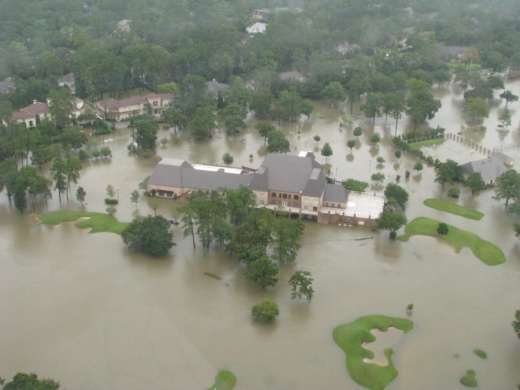Due to the outbreak of COVID-19, the Houston Office of Emergency Management is taking precautions when making plans for both shelter-in-place and evacuation scenarios should a hurricane strike the Greater Houston area, spokesperson Cory Stottlemyer said. In a worst-case scenario, city officials will prioritize the lives of those who need immediate rescue, even at the risk of spreading the coronavirus, he said.
During Hurricane Harvey, emergency responders used water rescue vehicles to pick up residents stranded in flooded areas and homes. They will do the same during any future storm, Stottlemyer said.
"They’re gonna put life safety first and foremost," he said. “We can do all the planning in the world, but Mother Nature is going to ... dictate how we respond.”
That is not to say, however, that emergency management officials are being careless when it comes to the coronavirus.
Typically, during a hurricane, emergency officials will admit residents who need shelter into large open buildings. Officials are looking at ways to maintain social distancing and protect employees and residents during such events.
One idea is to install plexiglass shields between residents seeking shelter and employees registering residents into shelters. Residents who are symptomatic could be isolated from the main group, Stottlemyer said.
The office is also considering using "non-congregate" shelters, such as hotels or dorms, to keep people separated.
During water rescues, residents will be placed in open-air vehicles, and fresh personal protective equipment will be waiting for them at whatever shelter they are dropped off at, Stottlemyer said.
“We’re not going to not admit you to a shelter [because you don't have PPE],” he said.
Additionally, the office is encouraging to residents to be prepared with the coronavirus in mind.
According to the office, residents should make a plan for if a major storm hits the Greater Houston area; prepare an emergency kit with enough food and water for seven days per person; be informed by going to www.alerthouston.org and registering for alerts; and know their neighbors so they can help each other in an emergency.
"Communities that work closely together, especially during a recovery phase, get back on track quicker," Stottlemyer said.
Due to the coronavirus, officials are asking residents to reconsider their evacuation strategy. A family that normally would relocate hundreds of miles away during a hurricane might only want to go tens of miles to minimize the risk of spreading or contracting COVID-19, Stottlemyer said.
Additionally, personal protective equipment, such as face masks and hand sanitizer, should be included in families' emergency kits.
If a hurricane strikes and neighbors begin working together to rebuild and take care of each other, the office cautions residents to remember to maintain social distance, wash their hands and take other precautions to help mitigate the spread.
"If you’re gonna be hands on [and] helping, ... that guidance still applies," he said.
Officials also said they are trying to promote the fact that they are ready to respond to an emergency despite the pandemic so the city can help as many people as possible should a major storm hit, Stottlemyer said.
"We don’t want to run into a scenario where people are scared to come to a shelter," he said.





